Electric vehicle competition drives into higher gear
Chinese electric vehicle (EV) maker BYD has started construction of its first factory in Thailand, on a 100-hectare site in Rayong province. The plant is expected to start operation in 2024, with a capacity of 150,000 EVs per year. Meanwhile, early this year BYD was also said to be seeking a site to build a plant in Vietnam to produce components as part of a global expansion.
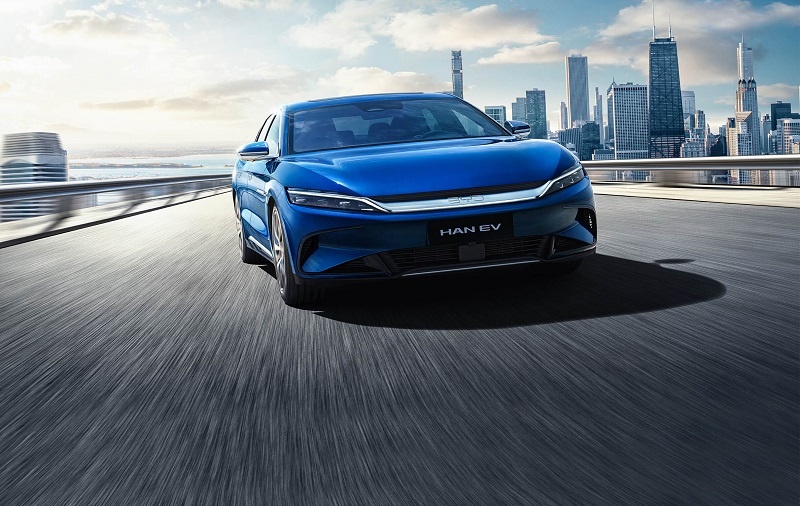 |
| Electric vehicle competition drives into higher gear, Source: byd.com |
Meanwhile, GWM plans to invest around $660 million and has put down around half of that to renovate a factory it bought from General Motors in 2020. Nikkei reported on GWM plans to manufacture a compact EV there in the first quarter of 2024.
Unlike BYD, the joint venture of SAIC-GM-Wuling Group (SGMW) has chosen to enter the international market with the low-cost mini electric car, the Wuling HongGuang Mini EV.
SGMW will collaborate with TMT to launch low-cost vehicles. The Mini EV will be built at TMT’s Vietnam factory, which has a capacity of 30,000 vehicles per year. In the coming months, the model will be officially available for purchase and its pricing will be revealed.
TMT stated that it has the sole authorisation to manufacture, assemble, and distribute the EV models in Vietnam, and that Wuling would support its production by providing auto parts to ensure quality and delivery. Because of its tiny size, elegant design, and flexible space with four seats, the Mini EV will be a new option within the lower price range of many Vietnamese clients.
As of February 2023, global sales since inception have passed 1,100,000 units, and the Mini EV has become the best-selling electric car in China.
VinFast, Vietnam’s current leading automotive firm, was founded in 2019, and by 2021, it had totally transitioned production to EVs. Its models are focused on the mid-range and luxury segments, whereas Wuling is positioned in the low-cost segment and presently has the lowest e-car price in the world. VinFast has a significant advantage because its charge stations span all provinces and national routes in the country.
Meanwhile, Be Group of Vietnam reached an agreement with an electric car leasing business last week, making it the country’s first ride-hailing company to deploy EVs.
Be, a homegrown platform with almost 10 million customers, and GSM, created by the owner of VinFast, will collaborate with Vietnam Prosperity Bank to allow drivers to transition away from combustion engine vehicles at “affordable prices,” according to a statement from Be.
Vietnam is encouraging the manufacturing and widespread usage of EVs as part of its attempts to attain carbon neutrality by 2050. According to VinFast, there are currently roughly 7,800 EVs on its roads.
Meanwhile, sales of Honda and Nissan in China have fallen at least in the past two years, while Toyota’s sales last year fell for the first time in a decade. Although chip shortages, factory closures, and related supply chain difficulties were the main causes, the lack of EV services also makes the Japanese auto industry less competitive compared to other countries. However, the problem that carmakers face when entering the Vietnamese market is removing bottlenecks in the distribution system and consumer psychology.
“Emerging brands will be under great competitive pressure from the brands that are deeply rooted in the subconscious of consumers. The issues include quality, price, features, after-sales service, warranty, and maintenance,” said a representative of a Honda dealership.
The Vietnam Business Forum in March noted that currently, EV production is a breakthrough industry worldwide, with high economic potential and application of advanced technology. This field is and is expected to attract interest as well as large investment capital from domestic and foreign investors, leading to the development of the supply chain of raw materials and components, which potentially make an important contribution to the development of industries in Vietnam.
In addition, in terms of the environment, EVs make an important contribution to environmental protection by limiting emissions into the environment. This field is also very suitable for Vietnam’s green development strategy as well as the implementation of net-zero commitments.
Accordingly, the business community has called for high corporate income tax (CIT) incentives. It is recommended that the government should supplement CIT incentives for projects manufacturing EVs similar to ventures in environmental protection, such as a preferential tax rate of 10 per cent over 15 years, and tax exemption for four years with a 50 per cent tax reduction for nine subsequent years.
The business community explained that the prevailing regulations do not include incentives for projects manufacturing e-vehicles.
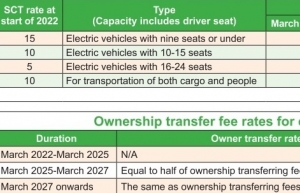 | How electric vehicles can shape the auto industry In order to implement Vietnam’s net-zero commitments, one of the solutions by the government is to use more electric vehicles (EVs) as a means of transportation for the step-by-step replacement of motor vehicles powered by conventional internal combustion engines. |
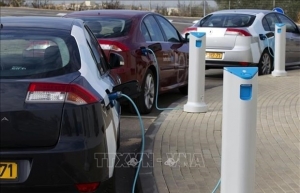 | Thailand sees bright future for electric vehicle market in 2023 Thailand's electric vehicle (EV) market will continue to gain momentum in 2023, with sales expected to reach between 25,000 and 35,000 units, according to the Federation of Thai Industries (FTI). |
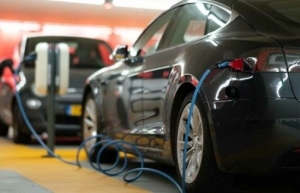 | Laos shifts gears on electric vehicle promotion Lao government has promoted electric vehicles which it hopes will help minimise fuel imports and ensure energy supply in the country. |
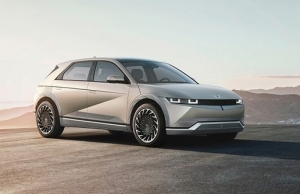 | Indonesia focuses on building electric vehicle ecosystem Indonesia's Ministry of Industry is striving to accelerate the growth of the battery-based electric motorised vehicle (KBLBB) ecosystem to reduce fuel consumption, according to the ministry's Secretary General Dody Widodo. |
What the stars mean:
★ Poor ★ ★ Promising ★★★ Good ★★★★ Very good ★★★★★ Exceptional
Related Contents
Latest News
More News
- State corporations poised to drive 2026 growth (February 03, 2026 | 13:58)
- Why high-tech talent will define Vietnam’s growth (February 02, 2026 | 10:47)
- FMCG resilience amid varying storms (February 02, 2026 | 10:00)
- Customs reforms strengthen business confidence, support trade growth (February 01, 2026 | 08:20)
- Vietnam and US to launch sixth trade negotiation round (January 30, 2026 | 15:19)
- Digital publishing emerges as key growth driver in Vietnam (January 30, 2026 | 10:59)
- EVN signs key contract for Tri An hydropower expansion (January 30, 2026 | 10:57)
- Vietnam to lead trade growth in ASEAN (January 29, 2026 | 15:08)
- Carlsberg Vietnam delivers Lunar New Year support in central region (January 28, 2026 | 17:19)
- TikTok penalised $35,000 in Vietnam for consumer protection violations (January 28, 2026 | 17:15)

 Tag:
Tag:




















 Mobile Version
Mobile Version